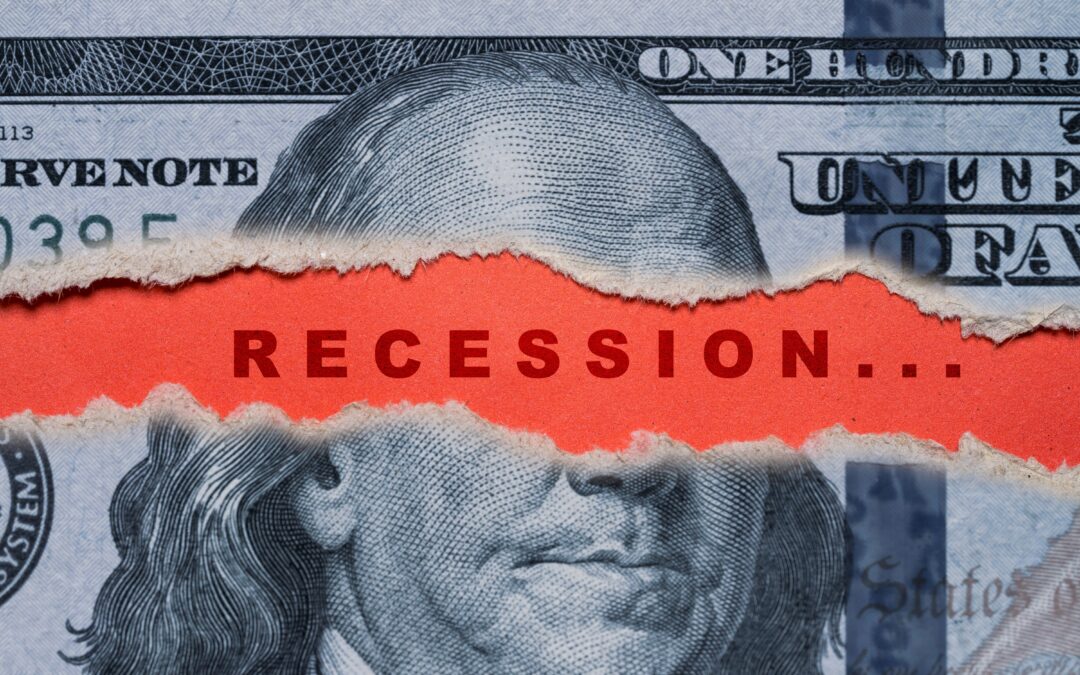May is shaping up to be an outstanding month for the stock market … but what about the economy at large?
I track a few “unique” consumer spending indicators, and they’re pointing to a possible recession headed our way.
Watch today’s video for all the details:
Americans are rapidly adjusting to the new reality of life
Welcome to Moneyball Economics. I’m Andrew Zatlin, and today I would like to share with you some economic data that I’m using in order to position my investments. Hopefully it’ll help you as well…
My challenge has been getting to the right data, and when I say right data, I don’t mean this dogmatically like “good data, bad data.”
I mean getting to the data that’s going to both give me line of sight to what’s going on in the economy and give it to me in a timely sense.
That’s kind of the problem because yesterday’s economy, and when I say yesterday’s economy, I literally mean yesterday’s economy. We’ve got to throw it away. In fact, since February, people have been front running these tariffs and that’s been creating some weird behavior in the marketplaces.
Even a few weeks ago, we were still outside the tariff zone and now we’re inside this tariff zone, and we’ve got a whole different set of consumer and industrial behaviors. And let’s face it — it could change again as Trump tosses out some goodies, which by the way, off on the side. I think May is when Trump is going to throw out some really neat presents for households and companies.
The reason I say that is he doesn’t want people going away for their summer holidays angry.
Let’s face it, that portfolio crushing that we got in March and April has not gone over very well. Alright, I think May’s going to be a great month, but I’ve got to keep my finger on the pulse of what’s going on in the economy.
Fortunately, I am the Moneyball economist.
I have at my disposal a lot of different data sets, and I have one that is very timely, very much happening in real time. It is the number of people on airplanes.
Let’s take a step back. The TSA — the people we know and love because they take our shoes off and run us through the security lines at the airports, they also track the number of flyers on domestic airplanes — and they provided almost in real time very current data.
And here’s something that’s been happening all year long. It’s a very important trend. We started off the year where we had more travelers at the beginning of the year than we had same time last year. That number was over 5% more people were traveling at the beginning of this year than they were last year.
This is discretionary spending. This is not cheap. This isn’t going down to the bar and having a couple of beers. These are consumers who are spending all of this money going out and having fun traveling.
Well over the course of time, that 5% has come down to 0%. That’s right. In April, the number of people traveling the same as last year, and that’s been steady trend and I predict it’s actually going to contract a little bit going forward.
How do we know this is consumer spending? Well, we do know that at the beginning of the year, a government freeze on travel was put in place, and that was back in January, so no doubt that brought it down a little, but that was back in January.
Why has it steadily marched down? Business travel? No business travel has been pretty solid.
This is a very unique, unprecedented situation where business travel is fine, it’s consumer travel that isn’t, and that’s because, well, businesses know, money’s still flowing in. It’s people who don’t know. There’s a little nervousness, or more particularly our portfolios were crushed. A lot of people are nervous, they’re uncertain they don’t have money because the portfolios were crushed, and so therefore they’re having to pull back a little bit.
And like I said, I think it’s going to continue. This is one important data set. If discretionary spending is going down, I’m going to tell you what to do about that before I do. Here’s a second one. Now this one’s a little bit more obscure. It’s a lot less quantified and more qualified, and quite frankly, it’s a little risqué…
I also track spending on escorts sex workers, and what’s interesting is we have a shift in both supply and demand.
What I mean is there are reports of substantial new entrants, new providers of supply. Typically, we would see these levels when you get into a recession. Why? Because this is the kind of work that can be done. And quite frankly, when you’re trying to make ends meet, this is a place where women do go. We have more reports of larger number of available providers competing for the same dollars. And when I say same dollars, it’s not the same dollars.
At the same time that supply is going up, demand is going down. There are a lot of reports in major tourist areas. Tourists are not spending money. Taken together, what we’ve got is an indication that discretionary spending is a problem. It’s a problem because people need to make ends meet and they’re doing what they need to do to get there, but it’s also a problem because it’s not being spent.
Where would I go if discretionary spending’s a problem?
Well, right off the bat, I wouldn’t be thinking that new cars are going to be purchased.
In fact, I think the opposite. I think used cars are going to pop up because people need to make ends meet, and if they need a car, they’re going to be more inclined to buy something used. So that’s one.
Secondly, I don’t think casinos are going to be doing very well, Caesars, MGM, I think they’re going to have a problem. I think the number of travelers going to Vegas and elsewhere are going to contract a little bit, and I think the spending’s going to contract a little bit. I think there are going to be problems going forward.
Another place where I don’t see discretionary spending is going to be concerts. I think people are going to pull back a little bit as well as brown foreman.
A lot of boozing isn’t going to happen. That’s going to happen at home.
So I think discretionary spending is very much a problem area. Costco though could be a nice place to go because let’s face it, if people are not just trying to stretch their dollars, they’re going to also look at changing their channel. They’re going to look at buying in different places. Costco, really, that’s where you stretch your dollar the most.
I think that going forward, these metrics among some others are going to be very useful because again, the economy’s going to change not just where we are in this tariff environment, but again, I see Trump throwing some things out there, some goodies out there. I do suspect the economy is going to shift a little bit. I think there are some companies that are going to benefit from these tariffs, and that’s a third data set I want to share with you.
I track hiring at individual company levels in the S&P 500 and beyond, and one thing I noticed in the most recent few weeks, industrial companies are ramping up their hiring, and that makes a lot of sense, right? Under the tariff regime that we’re facing, it is more expensive to import, finished or raw materials, and so you want to do as much as you can here, and I’m seeing factories start to ramp up in anticipation, or maybe it’s not in anticipation at all.
Maybe it’s in response to maybe they’re getting a lot of new orders coming in. So here what I’m talking about industrials, tons of companies, Honeywell and others. I wouldn’t want to just, there are too many companies out there that are ramping up Paccar, just so many to name key point.
We’ve got data that is more real time that is indicating the consumers pulling back, but it’s also indicating factories are ramping up a lot of opportunities in that zone. And we’re going to continue to track these because again, I think this economy’s going to change again and again and again. Every couple of months, Trump is going to do something that’s going to shift people’s attention accordingly. I’m going to keep you posted as I get new information.
We are in it to win it. Zatlin out.

Andrew Zatlin
Editor, Andrew Zatlin’s Superforecast Trader





